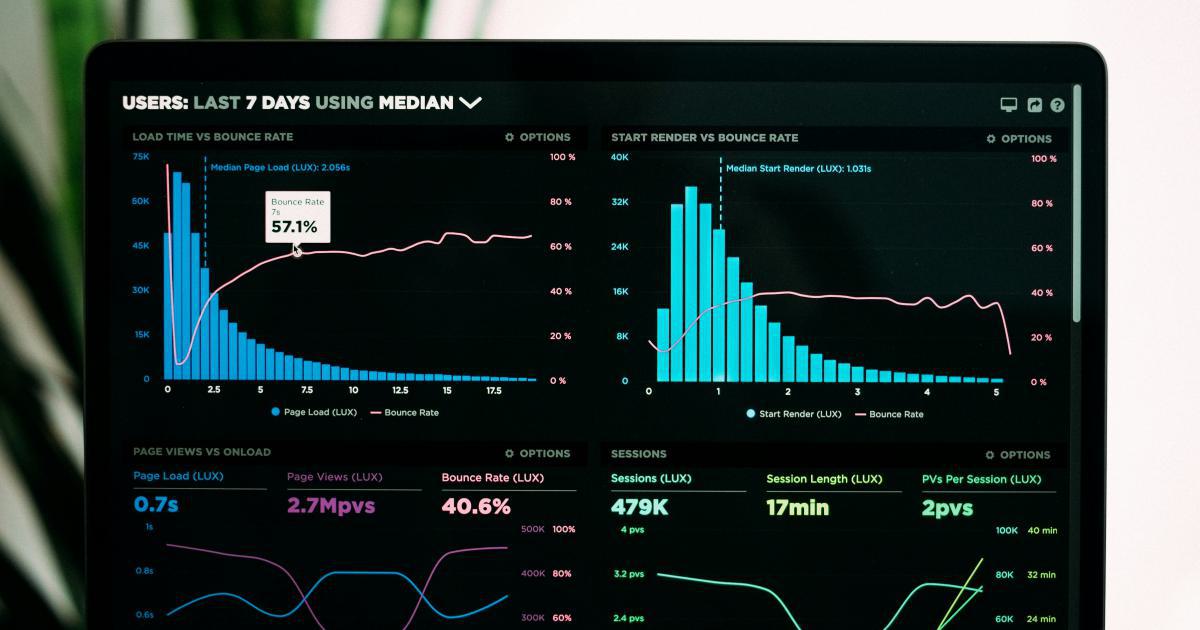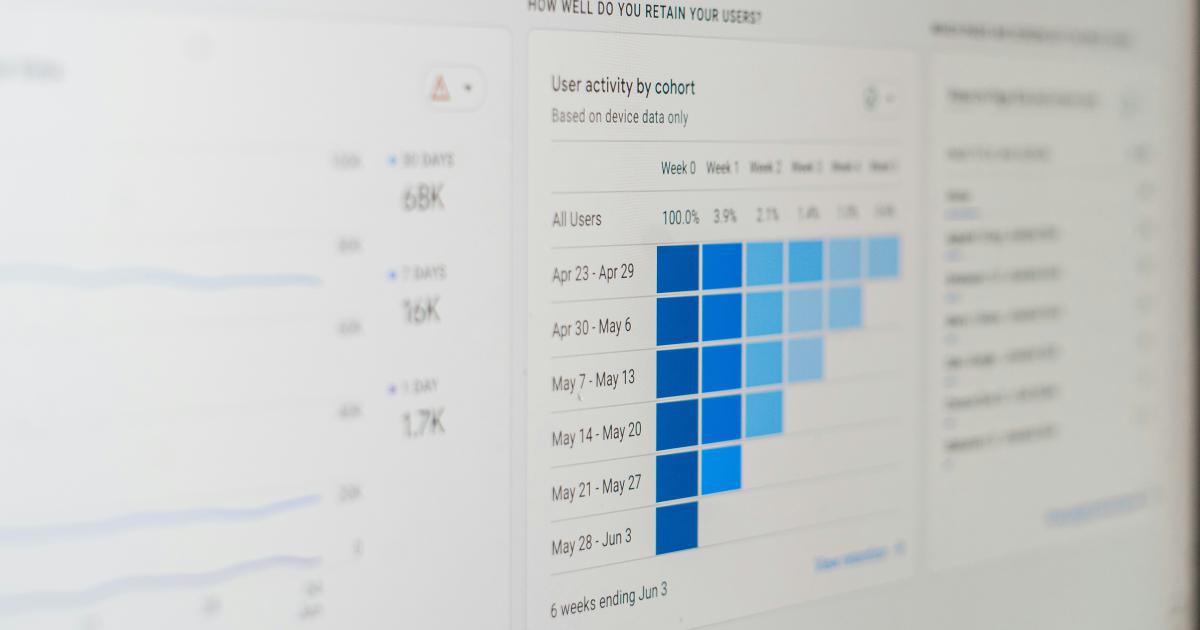Why Is Tracking Website Traffic Essential?


Introduction: The Significance of Website Traffic Tracking
In the digital age, a website serves as the virtual storefront for businesses, organizations, and individuals alike. It's the gateway through which potential customers, clients, or audience members discover and interact with your online presence. However, simply having a website is not enough - understanding and analyzing the traffic it generates is crucial for the success and growth of your online endeavors.

Tracking website traffic is an essential practice that provides invaluable insights into how your website is performing, who your audience is, and how they engage with your content. By leveraging these insights, you can make informed decisions, optimize your online strategies, and ultimately, drive more meaningful and profitable interactions with your target audience.
In this comprehensive article, we will delve into the reasons why tracking website traffic is essential for businesses and individuals, and explore the various metrics and tools that can help you unlock the full potential of your online presence.
Understanding the Importance of Website Traffic Tracking
Measuring the Effectiveness of Your Online Presence
At the core of website traffic tracking is the ability to measure the effectiveness of your online presence. By monitoring key metrics such as website visits, unique visitors, bounce rates, and average time spent on the site, you can gain a clear understanding of how your target audience is interacting with your website.
This information is crucial for evaluating the success of your marketing efforts, content strategies, and overall website performance. Are your promotional campaigns driving more traffic to your site? Are visitors engaging with your content, or are they quickly leaving? Tracking website traffic allows you to answer these questions and make data-driven decisions to improve your online initiatives.

Identifying Your Target Audience
Analyzing website traffic data also provides valuable insights into your target audience. By examining metrics such as demographics, geographic location, device usage, and browsing behavior, you can build a detailed profile of the people who are visiting your website.
This information is essential for refining your marketing strategies, tailoring your content to better meet the needs and interests of your audience, and optimizing your website's user experience. When you have a clear understanding of who your audience is and how they interact with your online presence, you can make more informed decisions to attract, engage, and retain the right customers or readers.
Optimizing Your Website and Content
Website traffic tracking goes beyond simply measuring the number of visitors - it also enables you to identify areas for improvement and optimization. By analyzing metrics like bounce rates, page views, and conversion rates, you can pinpoint the strengths and weaknesses of your website's design, navigation, and content.
This information allows you to make targeted changes to enhance the user experience, increase engagement, and drive more conversions, whether that's sales, sign-ups, or other desired actions. By continuously monitoring and optimizing your website based on traffic data, you can ensure that your online presence is performing at its best and delivering the desired results.

Tracking the Impact of Marketing Campaigns
Successful marketing campaigns are built on data-driven insights, and website traffic tracking plays a crucial role in this process. By monitoring the impact of your marketing efforts, such as social media campaigns, email newsletters, or paid advertising, you can measure the return on investment (ROI) and make informed decisions about where to allocate your marketing resources.
Tracking website traffic allows you to see which campaigns are driving the most visitors, which content is resonating with your audience, and which channels are most effective in reaching your target market. This information can help you refine your marketing strategies, optimize your campaigns, and ensure that your marketing efforts are truly moving the needle for your business or organization.
Gaining Competitive Insights
In today's competitive digital landscape, understanding how your website and online presence perform compared to your competitors is crucial. Website traffic tracking can provide valuable insights into your competitors' online activities, including their traffic volumes, traffic sources, and the types of content or features that are resonating with their audience.
By analyzing this competitive data, you can identify opportunities to differentiate your offering, capitalize on your strengths, and adapt your strategies to stay ahead of the curve. This information can inform your own website optimization efforts, content creation, and marketing initiatives, giving you a strategic advantage in your industry.

Improving Decision-Making and Accountability
Ultimately, the insights gained from website traffic tracking empower you to make more informed, data-driven decisions about your online presence and overall business strategy. By having a clear, measurable understanding of how your website is performing, you can set meaningful goals, allocate resources more effectively, and hold your team accountable for the results.
This level of transparency and data-driven decision-making is crucial for the success and growth of any business or organization operating in the digital age. By leveraging website traffic data, you can make informed choices, reduce risk, and confidently invest in the strategies and initiatives that will drive the most meaningful and profitable results.

Key Metrics and Analytics for Tracking Website Traffic
Effective website traffic tracking relies on the careful analysis of a range of metrics and analytics. While there are numerous data points to consider, understanding the most critical ones can help you focus your efforts and extract the most valuable insights. Let's explore some of the key metrics and analytics that are essential for understanding your website's performance.
Session and User Metrics
- Sessions: The total number of visits to your website within a given time frame.
- Users: The number of unique individuals who have visited your website.
- New vs. Returning Users: The ratio of first-time visitors to those who have visited your site before.
- Bounce Rate: The percentage of visitors who leave your website after viewing only one page.
These metrics provide a high-level understanding of the overall traffic to your website, as well as the engagement and loyalty of your audience.

Engagement Metrics
- Page Views: The total number of individual pages viewed on your website.
- Average Session Duration: The average amount of time visitors spend on your website.
- Pages per Session: The average number of pages viewed per visit.
- Conversion Rate: The percentage of visitors who complete a desired action, such as making a purchase or filling out a form.
Engagement metrics offer insights into how visitors are interacting with your website and the content you provide, highlighting areas of high interest as well as opportunities for improvement.

Acquisition Metrics
- Traffic Sources: The channels or platforms that are driving visitors to your website, such as organic search, referrals, social media, or direct traffic.
- Referral Sources: The specific websites or platforms that are sending traffic to your website.
- Keyword Performance: The search terms and phrases that are driving organic traffic to your site.
Acquisition metrics help you understand where your website traffic is coming from, allowing you to optimize your marketing and content strategies to attract more of your target audience.

Behavioral Metrics
- Device Usage: The types of devices (desktop, mobile, tablet) used by your visitors.
- Geographic Location: The geographical regions or countries from which your website traffic originates.
- Visitor Flow: The path visitors take as they navigate through your website.
Behavioral metrics provide valuable insights into how your audience is interacting with your website, which can inform design, content, and user experience decisions.

Conversion Metrics
- Goal Completions: The number of visitors who complete a specific desired action, such as making a purchase, submitting a form, or signing up for a newsletter.
- Conversion Funnel: The step-by-step process visitors go through to complete a conversion goal, and the drop-off rates at each stage.
- Revenue and ROI: The monetary value generated from website traffic, and the return on investment for your marketing and advertising efforts.
Conversion metrics are crucial for measuring the tangible business impact of your website and online presence, helping you identify opportunities to optimize for higher conversions and greater profitability.

Leveraging Website Traffic Tracking Tools
To effectively track and analyze website traffic, a variety of tools and platforms are available to suit the needs of businesses and individuals of all sizes. Here are some of the most popular and powerful website traffic tracking tools:
Google Analytics

Google Analytics is the industry-leading, free web analytics service provided by Google. It offers a comprehensive suite of features and metrics that allow you to track and analyze website traffic, user behavior, and marketing performance. With Google Analytics, you can gain insights into your audience, monitor the effectiveness of your content and campaigns, and make data-driven decisions to optimize your online presence.
Adobe Analytics

Adobe Analytics is a powerful, enterprise-level analytics platform that provides advanced data analysis and reporting capabilities. It offers more granular and sophisticated tracking features compared to Google Analytics, making it a popular choice for larger organizations and those with complex website and digital marketing requirements.
Matomo (formerly Piwik)

Matomo (formerly Piwik) is an open-source web analytics platform that offers a privacy-focused alternative to Google Analytics. It provides a range of features for tracking and analyzing website traffic, with the added benefit of allowing you to host the analytics platform on your own server, ensuring complete control over your data.
Heap Analytics

Heap Analytics is a user-centric analytics platform that automatically tracks user interactions and behaviors on your website, without the need for manual implementation of tracking codes. This allows you to gain insights into how users are engaging with your site and identify opportunities for improvement.
Mixpanel

Mixpanel is a product analytics platform that specializes in tracking user behavior and interactions. It excels at providing in-depth insights into how users are engaging with your website or application, allowing you to make data-driven decisions to enhance the user experience and drive conversions.
Implementing Effective Website Traffic Tracking
Implementing effective website traffic tracking requires a strategic and multi-faceted approach. Here are some best practices to consider:
Set Clear Goals and KPIs
Before diving into website traffic tracking, it's essential to define your specific goals and the key performance indicators (KPIs) you will use to measure success. These might include increasing website conversions, improving user engagement, or attracting more qualified leads. By establishing clear objectives, you can ensure that your traffic tracking efforts are aligned with your overall business or organizational goals.
Choose the Right Analytics Tools
Selecting the appropriate analytics tools for your needs is crucial. Consider factors such as the size and complexity of your website, your budget, and the specific metrics and features you require. While free tools like Google Analytics may be suitable for smaller websites, enterprise-level platforms like Adobe Analytics or Mixpanel may be better suited for more complex or high-traffic websites.
Implement Tracking Codes Correctly
Proper implementation of tracking codes is essential for accurate data collection and reporting. Ensure that the appropriate tracking codes are placed on every page of your website, and double-check for any conflicts or issues that could affect the accuracy of your data.
Continuously Monitor and Analyze Data
Regular monitoring and analysis of your website traffic data is key to identifying trends, detecting issues, and making informed decisions. Set aside time each week or month to review your metrics, identify areas for improvement, and adjust your strategies accordingly.
Leverage Segmentation and Filtering
Utilize the segmentation and filtering capabilities of your analytics tools to dive deeper into your website traffic data. Analyze metrics by user demographics, device types, traffic sources, and other relevant segments to gain a more nuanced understanding of your audience and their behaviors.

Integrate with Other Data Sources
For a more comprehensive understanding of your website's performance, consider integrating your website traffic data with other data sources, such as customer relationship management (CRM) systems, e-commerce platforms, or marketing automation tools. This can provide a holistic view of the customer journey and help you make more informed, data-driven decisions.
Communicate Insights Effectively
Ensure that the insights you gain from website traffic tracking are effectively communicated to relevant stakeholders, such as your marketing team, sales department, or executive leadership. Use clear, visually appealing dashboards and reports to present the data in a way that is easy to understand and actionable.

Case Studies and Examples
To illustrate the real-world impact of effective website traffic tracking, let's explore a few case studies and examples:
Improving Conversion Rates through Behavioral Insights
A leading e-commerce company noticed a significant drop in conversion rates on their product pages. By leveraging website traffic tracking and user behavior analytics, they were able to identify that a substantial number of visitors were abandoning their shopping carts due to a confusing and cluttered checkout process.
Armed with these insights, the company made strategic design and UX improvements to streamline the checkout flow. This resulted in a 27% increase in overall conversion rates, leading to a substantial boost in revenue and customer satisfaction.

Optimizing Content Strategy through Traffic Data
A media publication noticed that certain articles were consistently underperforming in terms of traffic and engagement. By analyzing their website analytics, they discovered that these articles were covering topics that were no longer resonating with their target audience.
Based on these findings, the publication pivoted their content strategy, focusing on the topics and formats that were driving the highest levels of traffic, time spent on site, and social sharing. This led to a 35% increase in overall website traffic and a 25% improvement in reader engagement.

Enhancing Marketing Campaigns through Acquisition Insights
A small business ran a series of digital marketing campaigns to drive traffic to their website and generate new leads. By closely monitoring their website traffic data and acquisition metrics, they were able to identify the most effective channels and tactics.
For example, they discovered that their social media advertising campaigns were generating a higher volume of qualified leads compared to their email marketing efforts. Armed with this information, they reallocated their marketing budget to focus more on social media advertising, resulting in a 42% increase in lead generation and a 28% improvement in their overall marketing ROI.

These examples illustrate the tangible benefits that can be achieved by leveraging website traffic tracking and data-driven insights. By understanding your audience, optimizing your content and user experience, and enhancing your marketing strategies, you can drive meaningful growth and success for your business or organization.
Conclusion: The Imperative of Website Traffic Tracking
In today's digital landscape, tracking website traffic is not just a nice-to-have, but an essential practice for any business or individual with an online presence. By understanding the insights and opportunities that website traffic data can provide, you can make informed decisions, optimize your strategies, and ultimately, drive more meaningful and profitable interactions with your target audience.
Whether you're looking to improve your conversion rates, enhance your content strategy, or refine your marketing campaigns, website traffic tracking is the key to unlocking the full potential of your online presence. By embracing the tools and best practices outlined in this article, you can position your website as a powerful engine for growth, success, and long-term sustainability.
Remember, the journey of website traffic tracking is an ongoing one, requiring continuous monitoring, analysis, and optimization. Stay vigilant, embrace data-driven decision-making, and let the insights you gain from your website traffic propel your online endeavors to new heights.